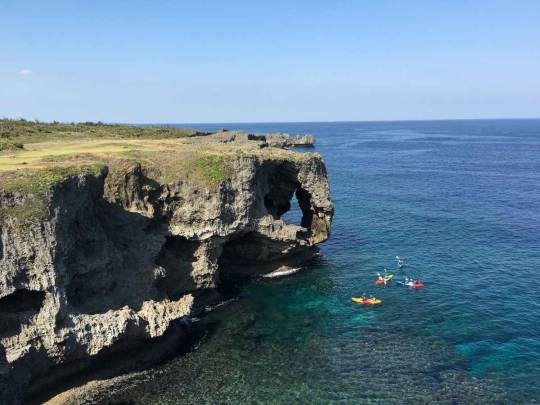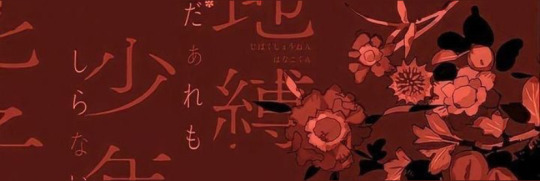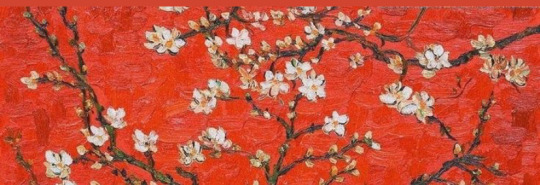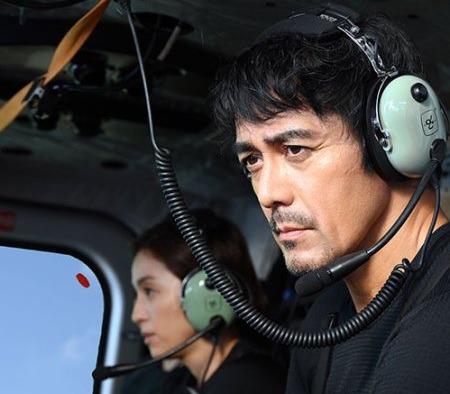#Japan Coast Guard
Text
Japan Coast Guard Confirms Kazuki Takahashi Passed Away Saving Child
Japan Coast Guard Confirms Kazuki Takahashi Passed Away Saving Child
#yugioh #anime #manga
Following up on the recent news story regarding Kazuki Takahashi’s heroism. If you recall, the Manga Creator was aiding a U.S. Military Officer in saving three people from a riptide near Mermaid’s Grotto in Onna, Okinawa. Now, the Japan Coast Guard is confirming that Takahashi did pass away saving a child from the riptide.
According to the report, U.S. Army Major Robert Bourgeau, a Diving…

View On WordPress
2 notes
·
View notes
Text
youtube
#youtube#militarytraining#maritime surveillance#maritime collaboration#maritime partnership.#international cooperation#joint partnership#maritime protection#maritime patrol#maritime law enforcement#maritime diplomacy#ocean protection#search and rescue#naval forces#coast guard drills#US coast guard#coast guard operations#coast guard training#maritime safety#Korea coast guard#maritime security#Japan coast guard#Naval Cooperation#Naval Security#Maritime Cooperation
1 note
·
View note
Text
youtube
Plane catches fire on runway at Japan's Haneda airport
A plane caught fire on the runway of Tokyo’s Haneda airport on Tuesday.
Local TV video showed a large burst of fire erupt from the side of a Japan Airlines plane as it taxied on a runway. The area around on the wing then caught fire.
Later video showed fire crews working to put out the fire. It wasn’t immediately clear what had happened or if there were injuries. NHK TV reported that the plane was JAL flight 516 that had flown out of Shin Chitose airport in Japan to Haneda.
Haneda is one of the busiest airports in Japan, and many people travel over the New Year holidays.
0 notes
Text

Japanese Coast Guard
#photography#japan#street photography#original photographers#street photo#kobe#Japanese Coast Guard#Dock#waterside
23 notes
·
View notes
Photo

A Japan Airlines (JL/JAL) Airbus A350 has been involved in a serious accident at Tokyo Haneda Airport on the evening of Tuesday, January 02, 2024. The aircraft collided with a De Havilland Canada DHC-8-315Q operated by the Japan Coast Guard on the runway at 17:47 local time.
A significant fire subsequently took hold, with video footage of the firefighting efforts being shared widely around online and traditional media channels.
The accident marks the first hull loss of an Airbus A350 aircraft.
(via Japan Airlines Airbus A350 collides with aircraft on landing in Tokyo | Flightradar24 Blog)
#accident#hull loss#aviation#japan#japan airlines#a350#airbus#tokyo#haneda airport#dhc-8#dash-8#coast guard#evacuation
4 notes
·
View notes
Text
#Regulations are written in blood#Tokyo#Airplanes#Japan Coast Guard Dash 8#Airbus A350#Disaster#News
3 notes
·
View notes
Text
New: Plane Crashes in Japan. 5 Crew Members of Coast Guard Plane Died
A Japan Airlines flight caught fire at Tokyo’s Haneda airport after reportedly colliding with a coastguard plane. All passengers were safely evacuated, but the condition of the small plane’s five crew members remains unknown though Sky News and Nikkei are now saying 5 crew members of the smaller plane have died.
Social Media Links
Follow us…

View On WordPress
1 note
·
View note
Video
youtube
Musk Says Twitter Is Roughly Breaking Even, Has 1,500 Employees. #twitte...
#youtube#Japan’s coast guard also said North Korea had fired what could be a ballistic missile. The launch comes two days after North Korean state m
0 notes
Text
POV of a passenger aboard Japan Air Flight 516 as the A350 skids along the tarmac after crashing into a Japan Coast Guard Dash 8 at Haneda Airport, 2 Jan 2023
62 notes
·
View notes
Text
RE: 5x05. I have no idea how much I'm supposed to read into this, but that has never stopped me before:
It's VE Day. Havers is back in England. The post office, telephone system, communication infrastructure etc all still work. So where is Cap's sense of urgency coming from? He knows the full name and regiment of a serving officer, a letter will get where it needs to go, they're very good about that over there. Yes, Cap's been waiting, but its been six years, he can wait a little longer-- hang out in the bushes until he sees Haver's car drive away and bang on the window, if he insists on being an insane person (<3). Figure out where he's billeted. Japan hasn't surrendered yet, so I suppose there's a chance Havers could get shipped to Burma or something and potentially die there, but he's not going to go straight from the cocktail reception to the troop ship, especially if everyone there is about to get "Hitler defeated"-levels of drunk. ("They're all red tabs, surely decency and decorum--" they are going to roll those old soaks out of there in wheelbarrows)
The urgency isn't because Havers might die. I think Cap knew his time was short.
He's a middle aged man in tolerably good shape, all that ration food aside. He make good time on his morning jogs, and his biggest ailment is 'creaky knees'. "Widowmaker heart attack out of nowhere" isn't an unheard of COD for someone who seems otherwise fine, especially someone who has been under a fair amount of stress (six years of wartime, including the fucking Blitz would do a number on my heart) but his sudden relocation makes me pause. It's only been about a year since he got relocated away from Button House, right? What was all that about? It's presumably still requisitioned, given that they're throwing a swanky victory party there and Heather Button is nowhere to be seen, but has the weapons program been disbanded? Or was there some reason to pull the CO out of a high-stress position and send him to the beach to take potshots at seagulls? (I am being glib here-- the coast was NOT a stress-free place when you can see your enemy just across the Channel). I genuinely forget what he said he was doing in season three-- was he even still in the army at all, or did they send his ass to the Home Guard? Even they got a campaign ribbon.
I think Cap made one last push to get to the front, and while its very clear that this dingus should under no circumstances be on the front line (<3) they humored him with a medical-- and found something really troubling. Or maybe he went in of his own accord, the old flutter, or maybe it was just a routine checkup. Either way he got some very serious news, so sorry old boy, just one of those things, could be any day now-- best make sure your affairs are all in order.
Hence the single-minded desire to meet, once last time. Everyone else clearly drove-- did he walk all the way from the train station, down the country lanes? Did he feel a little short of breath scaling all those walls? Did every set-back and stressor make him more determined-- just give me a little more time, just a little more time...
It could also be that he just got yelled at so hard he died of it, which is almost certainly how I will go, but that was my immediate impression and it has not left me, nor have I known peace. I know there's a few holes in my theory but I haven't talked myself out of it yet. For me the kicker is that he experiences at least ten devastating emotions in the last moments of his life, but "surprise at entering cardiac arrest" does not appear to be one of them. It looks more like grim acceptance. Stoic in the face of death-- a soldier to the end.
#bbc ghosts#ghosts spoilers#the captain#I will be so embarrassed if I wasnt watching closely enough#and this is all explicitly text no one thought to comment on because duh#but I didn't see it in the tags and I think I might explode just thinking about it#I have mooooooooore thoughts and you will hear them!#ghosts season 5
114 notes
·
View notes
Text
South Korea has protested to Japan over a tsunami advisory issued by its neighbour following the powerful New Year's Day earthquake that featured a map displaying a group of its islands also claimed by Tokyo, officials in Seoul said on Tuesday (Jan 2).[...]
South Korea offered condolences for Monday's disaster, but added that the islands, shown on the map issued by Japan's weather agency, were not subject to any territorial dispute.
"Our government has sternly protested to Japan through a diplomatic channel and requested corrective action," Lim Soo-suk, a spokesperson of the South Korean foreign ministry, told a briefing.[...]
Japan also protested after annual drills around the islets last month by South Korea's military. Seoul's defence ministry responded that the exercises were regular training efforts meant to protect territory, citizens and assets.
South Korea stations a small band of coast guards on the islets.
2 Jan 24
39 notes
·
View notes
Text
In the waters of the South China Sea, Chinese coast guard vessels have clashed with Philippine ships. In the air above the Taiwan Strait, Chinese warplanes have challenged Taiwanese jet fighters. And in the valleys of the Himalayas, Chinese troops have fought Indian soldiers.
Across several frontiers, China has been using its armed forces to dispute territory not internationally recognized as part of China but nevertheless claimed by the Chinese Communist Party (CCP).
In August 2023, Beijing laid out its current territorial claims for the world to see. The new edition of the standard map of China includes lands that are today a part of India and Russia, along with island territories such as Taiwan and comprehensive stretches of the East and South China Seas that are also claimed by Brunei, Indonesia, Japan, Malaysia, the Philippines, and Vietnam.
China often invokes historical narratives to justify these claims. Beijing, for example, has said that the Japanese-administered Senkaku Islands, which it claims under the name of the Diaoyu Islands, “have been an inherent territory of China since ancient times.” Chinese officials have used the same words to back China’s right to parts of the northeastern Indian state of Arunachal Pradesh. The Chinese government also claims that its sovereignty over the South China Sea is based on its own historic maritime maps.
However, in certain periods since ancient times China has also held sway over other states in the region—Mongolia, North Korea, South Korea, and Vietnam. Yet Beijing is currently not laying claim to any of these.
Instead, Beijing has embraced a selective irredentism, wielding specific chapters of China’s historical record when they suit existing aims and leaving former Chinese territories be when they don’t. Over time, as Beijing’s interests and power relations have shifted, some of these claims have faded from importance, while new ones have taken their place. Yet for Taiwan, Chinese claims remain unchanged, as the fate of the island state is tied to the very legitimacy of the CCP as well as the vitality of Chinese President Xi Jinping’s political vision.
Many of the CCP’s territorial claims have roots in the 19th and 20th centuries during the late rule of the Qing Dynasty. Following diplomatic pressure and repeated military defeats, the Qing Dynasty was forced to cede territory to several Western colonial powers, as well as the Russian and Japanese empires. These concessions are part of what are known in China as the “unequal treaties,” while the 100 years in which the treaties were signed and enforced are known as the “century of humiliation.” These territorial losses eventually passed from the dynasty to the Republic of China and then, following the Chinese Civil War, to the CCP. As a result, upon the CCP’s establishment of the People’s Republic of China in 1949, the new Chinese state inherited outstanding territorial disputes with most of its neighbors.
But despite the humiliation the Qing Dynasty’s losses had caused, the CCP proved willing to compromise and reduce its territorial aims during times of high internal unrest. Following the Tibetan uprising in 1959, for instance, the CCP negotiated territorial settlements with countries bordering the Tibet region, including Myanmar, Nepal, and India. Similarly, when unrest rocked the Uyghur region in the 1960s and ‘90s, Beijing pursued territorial compromises with several bordering countries such as Afghanistan, Kazakhstan, Kyrgyzstan, and Tajikistan. In the aftermath of the Great Leap Forward in the early 1960s and the 1989 Tiananmen Square Massacre, the CCP also pursued territorial settlements with Mongolia, Laos, and Vietnam in the hopes of securing China’s borders during times of domestic instability. Instead of pursuing diversionary wars, the CCP relied on diplomacy to settle border and territory disputes.
But China has changed quite a lot since then. In recent years, the CCP has avoided the inflammatory domestic political chaos of previous decades, and its once-tentative hold over border regions, such as Tibet and the Uyghur region, has been replaced by an iron grip. With this upper hand, the CCP has little incentive to pursue peaceful resolutions to remaining territorial disputes.
“China’s national power has increased significantly, reducing the benefits of compromise and enabling China to drive a much harder bargain,” said M. Taylor Fravel, a political science professor at the Massachusetts Institute of Technology.
In this context, the CCP has expanded its irredentist ambitions. After the discovery of potential oil reserves around the Senkaku Islands, and the United States’ return of the islands to Japan in the 1970s, Beijing drew on its historical record to lay claim to the islands, even though it had previously referred to them as part of the Japanese Ryukyu Islands. Similarly, though Beijing and Moscow settled a dispute over Heixiazi Island, located along China’s northeastern border, in 2004, the 2023 map of China depicted the entire island (ceded, along with vast Pacific territories, by the Qing Dynasty to the Russian Empire in 1860) as part of its domain, much to the ire of the Russian Foreign Ministry.
Collin Koh Swee Lean, a senior fellow with the S. Rajaratnam School of International Studies at the Nanyang Technological University in Singapore, argues that the Chinese mapping of Heixiazi Island shows that Beijing holds on to certain core interests and simply waits for the opportune time to assert them.
“Given the current context of the war in Ukraine and Russia’s increased dependence on China, it might have appeared to Beijing that it has the chips in its pockets because, after all, Moscow needs Beijing more than the other way around,” Koh said on the German Marshall Fund’s China Global podcast.
This raises the question of whether territorial disputes that were settled during times of CCP weakness can be revisited and become subject to irredentist ambitions should power balances shift in China’s favor.
According to Steve Tsang, the director of the China Institute at the University of London’s School of Oriental and African Studies, there is currently a limit to how far the CCP will push territorial claims against Russia, since President Xi will need Russian support to sustain his grand ambitions for Chinese leadership on the global stage.
Although it would be a long shot, even Russia may not be safe from these ambitions indefinitely. Given that large swaths of Russia’s Pacific territories were part of China until 1860, “China could claim back the Russian Far East when it deems the time is right,” Tsang said. Such control would grant Beijing unrestricted access to the region’s abundance of coal, timber, tin, and gold while moving it geographically closer to its ambition of becoming an Arctic power.
While there is plenty of historical evidence pointing to former Chinese control over the southeastern portion of the Russian Far East, the historical record is less unequivocal about Chinese control over Taiwan. Anything resembling mainland Chinese control over Taiwan was not established until after 1684 by the Qing Dynasty, and even then central authority remained weak. In 1895, the Qing Dynasty ceded Taiwan to the Empire of Japan following the First Sino-Japanese War, and by the time Chinese authority was restored in 1945, Taiwan had undergone several decades of Japanization.
These details have not prevented the CCP from claiming that Taiwan has been an inalienable part of China since ancient times. Yet more than any other irredentist claim, Xi has made unification with Taiwan a major component of his vision to rejuvenate the Chinese nation.
Unification, however, has little to do with ancient history and more to do with the challenge that Taiwan presently poses to Xi’s aims, according to Chong Ja Ian, an associate professor who teaches about Chinese foreign policy at the National University of Singapore.
“The CCP pursues a Chinese nationalism that emphasizes unity and homogeneity centered around the CCP leadership while they also often claim that their single-party rule is acceptable to Chinese people,” Chong said.
In contrast, Taiwan holds free elections in which multiple political parties compete for the favor of a people that have increasingly developed an identity distinct from mainland China.
“The Taiwanese experience is a clear affront to the CCP narrative,” Chong said.
Control over Taiwan is also attractive to Beijing because it is key to unlocking the Chinese leadership’s broader ambition of maritime hegemony in waters where almost half of the world’s container fleet passed through in 2022.
As with the case of Taiwan, the CCP’s historical arguments regarding its claims on island groups and islets in the East and South China Seas are likewise much weaker than many of its land-based claims.
Instead, Chinese territorial intransigence in the maritime arena is more about a strategic shift in the value of the seas around China, Fravel said.
Today, it has been estimated that more than 21 percent of global trade passes through the South China Sea. And beneath these waters are not only subsea cables that carry sensitive internet data but also vast estimated reserves of oil and natural gas.
Although it may say otherwise, Beijing’s unwillingness to let up on its tenuous territorial maritime claims suggests that China is pursuing long-held ambitions and global aspirations rather than attempting to reverse past losses. So long as the CCP wields its historical record selectively and changeably to serve its aims—and is willing to back its claims up with military action—China’s neighbors will remain at risk.
22 notes
·
View notes
Text






| ON THIS DAY |
On March 8, 2007, Michael Jackson attended a "VIP Night" fan event at Coast Studio in Tokyo. Michael arrived in Japan on March 4 for his second visit in years to host an exclusive party where fans paid US$3,400 for dinner and spent 30 seconds face-to-face with the pop icon. Two fan appreciation nights were held over the past two nights. A smiling, relaxed Jackson, wearing sunglasses and a leather jacket, was led by guards past hundreds of screaming fans at Narita Airport on Sunday afternoon. Some signs read "We love Michael" and "Welcome to Japan." "
Image: Playback Internet
17 notes
·
View notes
Text

Help available.
#photography#japan#street photography#fujifilm#kobe#street photo#original photographers#Boat#Coast Guard
7 notes
·
View notes
Text
Natsu Tenokami- Emperors Daughter

Nastu | Emperors Daughter | 24 years old | Manipulative + Clingy
There's a few things you need to know before we talk about Natsu in general. In 1635, Japan made a law called the Sakoku decree which limited foreign trade from other regions. Sakoku translated into English is ‘country in chains’ which basically means what it means. No Japanese citizen could leave the country without a really good reason to do so and even then it was hella difficult and expensive. The same restrictions have been happening way before 1635 but the sakoku decree made it impossible to even go anywhere near or anywhere out of japan.
If you're one of the traders you could only go to China and China only. This goes with foreigners as well, Nagasaki was the only port of which trade would be conducted and even then royal guards would watch over and make sure nothing of christian variety would go through trade. During this time southern Japan (Mainly Kyushu) has seen an increase of catholic converters which the imperial emperor found as a threat. Many catholic citizens were killed due to them not converting back or were killed if they didn’t agree to move to a small island off the coast of Japan.
Now that is done and explained in the best way possible let's move on to the main reason we are here.
Nastu was born before the sakoku decree, in the winter of 1611, where everything was still a bit strict with trading but wasn’t to an extent of murder on site. At a young age she would play with the children from the nearby village that laid at the bottom of her imperial fortress. The only issue with this is that her father, Kibishi Tenokami, saw this activity as horrifying and brought dishonesty to the imperial family. ‘No daughter of mine should play with that of commoners’ her father would say on the daily once he found out she went to play in the village. However she would still go down to play since her father wouldn’t dare hurt her in any physical way and only kept her in the fortress for a week max as punishment.
She had 1 older brother, Nobaru, who would be the heir of the throne once he came of age and a younger brother, Kibo, who would be the second heir to the throne if the original heir were to unexpectedly die. Her mother passed away after childbirth due to complications and blood loss. Her father as mentioned earlier is strict with who she talks with others and definitely controls what she does on occasions which is probably why she becomes manipulative towards her lover.
Here's a little side note about Natsu, while yes she did grow up without a mother doesn’t mean she didn’t have a mother figure in her life. That's where her personal assistant Aio comes into play. Aio was 20 when she took care of baby Natsu and was about 36 when Natsu had her first crush. To keep it simple, Aio wasn’t much help and probably didn’t tell her that she was doing something wrong.
At 16 Natsu fell in love with a boy in the village she used to go to as a child. At that time she hasn’t gotten much attention or affection from her father so she quickly became attached to this village boy. Her father heavily disapproved of this and banned Natsu from visiting him, going as far as threatening Aio into locking Natsu in her room at night as well as locking the windows.
Aio, feeling bad for having to do this to a child, she let Natsu visit the boy in the village every week for one night. This kept happening as the months went by and only did it stop when Natsu found out that the village boy she once loved didn’t love her back in the same way. She ended up telling Aio in broken sobs that her lover truly didn’t love her back.
“What am I supposed to do Aio? I-I thought he loved me! H-How could he just fall for some…some ragged village girl! I could’ve given him anything he wanted!”
She spent hours in her room heartbroken, her brothers didn’t know what was going on and tried to help but she refused saying stuff along the lines of ‘I hate this family, if i wasn’t his daughter I could’ve had him!’ which confused the two brothers since they didn’t know who this unknown man was that their sister had unknowingly fallen in love with.
It was only when Natsu came up with the idea to just get rid of the boy who was causing her so much stress and pain in her heart. So after a few days, the village boy disappeared and was never seen again by anyone. Aio helped hide any evidence in fear she would get caught letting Natsu out at night.
Years have passed since that fateful day, rumors came and gone like the morning breeze, none really stayed put into the solid ground in fear the Emperor would cause all hell to break loose. Natsu realized her mistake, even though she doesn’t really feel any guilt. It was the boy's fault for not loving her back.

In my view of the AU I have created I would imagine something like this to happen for Natsu to meet her Darling (Aka male reader)
It was early in the morning with just enough light to pass crates to one another and for the guards to watch everything. She didn’t really want to be there watching the transaction happen but she couldn’t stand Nobaru’s whines and begs for her to at least watch what happens behind the scenes. This was the fourth time he asked and ,to her very reluctant pleasure, she agreed. Which is why she sits alone in the cold morning air at this very moment.
She sat on one of the stone stairs with her elbow on her knee, her gray blue eyes lazily glossing over all the traders one by one with not a single ounce of interest. A slight frown stood on her face, showing how unhappy she was to be here in the exact moment. The chitter chats of the traders talking with the imperial guards filled Natsu’s ears. She couldn’t even pick out what even one trader was saying due to how hushed they talked. That was until something caught her eye. A small group of traders huddled around one of the crates in a bout of confusion. A small cloud of air showed right in front of the blackette’s lips as she sighed. Slowly standing up from the cold pebble stairs the soft clicks of her heels as she walked down the steps quickly quieted everyone near.
“What’s going on here? This isn’t a small party, we should be hurrying the produce onto land.” Her voice was strict but had the flow of sweet honey as she talked, all of the traders stuttered out a response only for one of the guards to walk over and randomly grab down into the crate and pulled out a H/c boy who seemed quite afraid.
Natsu’s eyes widen in shock, she hasn’t seen a foreigner in years if not decades since her father put the Sakoku decree in place. She was quite mezmorized at the exotic features of the man. Even though he was covered in dirt that soiled his commoner clothes his eyes were such a pretty e/c that Natsu couldn’t look away. His hair was covered in dirt and knots probably formed from the rough journey but Natsu didn’t care.
“Let me go!” The unknown boy yelled in both fear and anger as the royal guards held his forearms in a bone crushing grip so he wouldn’t escape. It was chaos as some guards ran to get the emperor while others stood their ground and watched the boy. Natsu knew what was gonna happen next, they would take the boy near the water and slice his head clean off with one of the sharp swords they had. She can’t have that, for some reason she felt compelled to do something to save this boys life.
“Hold your ground!” Natsu yelled above the roaring chaos making everyone stop and turn towards her in confusion and slight annoyance. Her brother Nobaru was even more confused as she walked her way to the unknown boy and ripped him from the guards grip.
“He’s the servant I have requested not to long ago, I wasn’t aware of when he would come. So I’m sorry for not informing you earlier.” Natsu’s grip on the boy loosened quite a bit as he stood confused but happy as he was dragged without further instructions towards the Imperial fortress.
If only he knew that life would’ve been much better if his head was chopped off then.

-Hello! How was the first Oc introduction? Some feedback would be appreciated as well as reposting! Have a good day/night-
#Natsu-Emperors Daughter#Yandere Female#Yandere x reader#yandere oc x you#yandere imagines#Yandere girl#mediveal#Mediveal times#Oc#Oc x reader#Horror
21 notes
·
View notes
Text
DCU: Deep Crime Unit

Plot: Niina Masayoshi is the leader of DCU. The group was newly created by the Japan Coast Guard and stands for Deep Crime Unit. Their mission is to find evidence and dead bodies hidden underwater, that are crucial to solving criminal cases. Niina Masayoshi never gives up investigating the truth.
Language: Japanese
Subber: aoinousagi (on Twitter and Tumblr)

Niina Masayoshi played by Abe Hiroshi
Ep 01:
Hit by debris from an explosion, unconscious
Ep 05:
Ambushed, held at knifepoint
Tied up
Have a knife cut into his neck, blood
Ep 08:
"Drugged"
has his head forced underwater
Ep 09:
Stabbed, hospitalized
In pain and collapse from his injury
Attacked while diving, Handcuffed to railing and trapped underwater

Seno Haruki played by Yokohama Ryusei
Ep 01:
As a child, thrown into the sea by his father just as their yacht explodes. Is rescued but is pulled underwater. Loses his memory of the incident
His diving line gets stuck on some rocks, regains his memory as a result. Starts to panic in the water and has to be saved by Niina
Manhandled; arm twisted behind his back then shoved to the ground
Ep 02:
Pass out while in the water, almost drowns
Revealed to have PTSD and is hiding it to continue as a diver
Hospitalized
Ep 03:
In shock after finding the body of his colleague/friend. Anguish screaming
Crying, lots of crying
Ep 04:
Unable to get into the water due to Ptsd
Ep 05:
Blindfolded and manhandled
Kicked to the ground
Knife held to his neck
Punched in the face
Manhandled again and tied to pillar
Emotional whump: realizing he has been betrayed
Ep 07:
Targetted by a sniper
Ep 09:
Locked in a room with a bomb

Nishino Toma played by Takahashi Mitsuomi
Ep 08:
Unconscious from breathing poisonous fumes
Almost drowns as he was in an onsen when he fell unconscious. Saved by Niina
Wakes up disoriented
Thoughts:
Interesting and exciting concept, but disappointing execution. It would have been better if they didn't do the "dead friend is actually alive and is now the baddie" trope, and also if they had not killed off that character in ep 03. Well, at least there were some whumpy scenes.
#dcu: deep crime unit#asian whump#whump#jdrama whump#japanese drama#jdrama#japanese whump#whump lists#whumplist#whumplists
107 notes
·
View notes